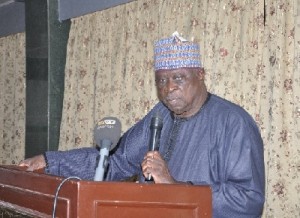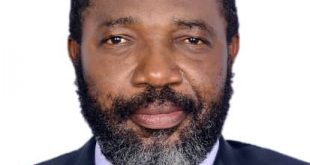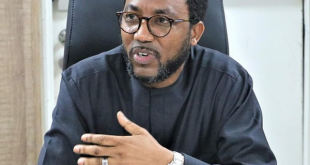
Implicit in the topic of this address is the suggestion that those at the helm of the transport industry subscribe to the idea or concept of the on-going change agenda subject, however, to having a leadership that would drive the change to its desired goal. The word change is a simple word; the many variations in meaning that there may be simply illustrations of how the word can be used in different circumstances. In a nutshell, change simply means to become different; to make a difference from one situation to another for the better.
However, the use of the word change to effect a difference from a given situation to another may have some serious implications or very demanding conditions without which the desired change may not be readily attained for example if you want to change an old padlock with a new one, there is no big deal in effecting such a change but where the change affect human endeavour, account must be taken of the reasons for the changes, the circumstances and certainly whether the new entrant is suitably qualified and is capable of affecting the change envisaged. Change for the sake of change is not compatible with change to make a difference, probably for the better in a given situation. More importantly, meaningful change cannot be attained if the responsibility for promoting and affecting the change is perceived to be the duty of a sole administrator of change.

In all human endeavor, people are the catalyst for change; they would need to know the reasons for the change; what would be the end result of the change and how the change would affect them. This process is not only important in making them to understand the reasons behind the anticipated change, but would also ensure that their co-operation will be readily available to make the exercise a success. It must be made clear that in nearly human endeavor, there is no guarantee that everybody involved in an enterprise would necessary welcome the move to introduce changes in the organization. Attempts should be made to get the opponents of change in line and if the recalcitrant persists, such miscreant should be shown the way out.
The “Transport Industry” is central to the theme of our discussions. What constitutes the transport industry of Nigeria? Who are the main actors in projecting the right image of the Transport Industry? What are the challenges facing the transport industry in Nigeria? The discussions that follow are essentially the views of a layman whose technical knowledge of the intricacies of the Transport Industry is pedestrian.

The determination of what constitutes the Transport Industry of Nigeria is not far to see; it includes the Nigerian Railways; the Nigerian Shipping line; the Road Transport; the Airways; the boats plying the in-land waterways of Nigeria; hundreds and thousands of motor-cycles and tricycles plying the road networks of Nigeria particularly in the urban areas. By no means the least are the camels and donkeys that bore the brunt of road transportation before the advent of technology. Sad to say, these beasts of burden are virtually extinct because they have found a place in the soup pots of some Nigerians as mouthwatering delicacies.

A well-organized transport system of a country could easily be the life-wire of the country as we are experiencing in Ethiopia. Nigeria with its multifarious endowments in transportation facilities remains the most disorganized and the must wasteful system in place. No one has been held accountable for the disgraceful demise of the Nigeria Railways, Nigeria Airways and the prestigious shipping lines that plied between Lagos and Southampton and /or Liverpool. The steamships plied the waters of Rivers, Niger and Benue carrying agricultural products from the North through Minna and Baro to Lokojaenroute to Burutu and Forcados bound for Britain. Few years after independence, Nigeria continues to bask in the glory of having a functioning air-line, railway, shipping line, road system and a satisfactorily organized railway system. The roads were one lane and narrow, but there was discipline and road courtesy. The F27 aircrafts in use were few in number, but they were well maintained and were efficiently operated and reasonably on time; even the trains that hauled cattle to the South about fifteen to twenty wagons) ran on time.
One of the wonders of Nigeria is to be found in how we are able to move around from place to place either by road, by train or by air. Briefly, there is actually nothing to change but everything to start afresh in accordance with what obtains in the twenty-first century. We cannot manage with old engines and wagons for our train services; we cannot afford not to have a national carrier (we had 28 passengers on commercial air-crafts at one time); our water-ways must be put into use for the benefit of the people who need to be served with the regards to road transport, a fundamental question need to be asked: which is the supervising Ministry of the road transportation network of Nigeria? Is it the Ministry of Works or the Ministry of Transport? The answer to this question is key to determining a number of issues related to the conditions that have become appallingly disgraceful in our road transportation system. Sometimes one gets the impression that no one is in-charge and this is borne out of the way and manner that issues related to road transportation is treated with such careless abandon. It appears that there are too many hands in the pie of road transport and it is about time to streamline the authority overseeing road transportation.
The crux of the matter is that we do not have an integrated policy on transportation system in the country and these accounts for chaos that is characteristic of our experiences while travelling within the country; there is no law and order particularly on our roads and if there are any nobody seem to know what they are and consequently, not implementable. If the change we are all expecting materializes, there will be massive output of agricultural products: solid minerals will be extracted and processed for export; trade between Nigeria and other nations will increase phenomenally. The obvious consequence of these developments will be the prevalence of a network of transportation system that will have to cope with the avalanche of agricultural and mineral products that must be conveyed from one end of the country to the other. The transportation system must be fast and safe and must be capable of delivering on time.
It needs to be emphasized that the transport industry is important in any economy. This is because of the major role the industry plays in promoting the effective functioning of other sectors of the economy. Every country in the world to-day recognizes the central role that transport plays in the socio-economic growth and development and therefore makes significant effort to meet the ever challenging demand of mobility and physical distribution.
With regard to leadership, strong leaders are important to any business to function effectively and efficiently but transport management demand unique leadership capability (Filani, 2013). Transport represents large and diverse investment for most company that engage in it. The unique challenges in transport industry makes it imperative to have the right leadership and professionalism a critical part of achieving good result the two concepts – change and leadership are not interchangeable. It is possible to be a good leader, that is, someone who is capable of managing the day-to-day activities of an organization but without bringing any change to the system. The transport industry in Nigeria is in a desperate situation. It will require a committed leadership that will be prepared to make sacrifices that will bail the industry from its present morass.
The Report of the National Conference (2014) states categorically that:
“Nigeria does not have an integrated inter-modal transport system. There is therefore, the need to invest in intermodal linkages to integrate operations…”
The National Conference (2014) made additional observations on the transportation sector some of which are as follows:
- Nigeria should have a policy formulating body which is the Council and the National Transportation Commission (NTC) to handle implementation;
- Create independent economic and safety regulation department for the transport sector under the NTC;
- Promote economic development, expand trade and improve Nigeria’s competitiveness through an efficient and affordable integrated transport network;
- Increase the involvement of the private sector in the provisions, maintenance, operations and upgrading of infrastructure;
- Improve the safety, environment, security, reliability, quality and speed of movement of goods and people, at both National and international levels;
- Develop transport infrastructure that ensures environmental sustainability and internationally accepted standard
- Create a national integrated multimodal transport network.”
The obvious implications of the quoted observations/recommendations of the National Conference are that we are deficient in nearly all the issues listed above in which case our transport industry is not what it ought to be; economically we are losing millions of naira resulting from operating a very poor transport system both nationally and internationally.
The National Conference concluded by saying that “resolving the perennial challenges of our transportation sector would require the integration of transport with national development priorities through the deployment of appropriate funding and financing mechanism that would enhance the delivery of efficient and effective transportation operations that would protect our economy and encourage inclusive growth”.
The conclusions of the National Conference have captured and clearly delineated the task before the nation in establishing a virile transport industry. It is not only a matter of having a leadership as much as it is that of having a clear direction that would guide the leadership to attain the desired goals. Of course, leadership is of the essence but a leadership must work within the frame-work of the objectives identified. A leadership cannot strategize in the absence of clearly defined vision. A leader faced with the task of “driving change agenda” may have no problems provided; he is conversant with what is needed to be changed and he is given the tools to attain the goals of his mission. By the time a leader is identified, it is assumed that he possesses the knowledge and the capacity to perform the duties of his office. Needless to say, the leader should be credible, has the drive and is a good manager of people. There is no doubt that the Transport Industry in Nigeria needs a new direction but a leader cannot of his/her own make the change happen in the absence of inspiration from those that own the “industry” and are willing to make things happen. There is a great future for the Transportation industry in Nigeria. There is the land mass; our population is increasing in leaps and bounds; our water-ways are lying fallow waiting to be put into good economic use; people and agricultural products are waiting to be moved from one end of the country to the other safely; all that is required is for us to have the blue-print on transport in place and provide the wherewithal that would drive the change agenda. As of now, our Transport Industry is pedestrian.
In summary, we support the concept of change particularly if doing so will make a difference to the socio-economic situation in a prevailing circumstance. However, the disruptive effect of sudden change must be taken note of pro-actively in order to avoid misreading the cue of change. We believe that there is a great future for the transportation industry in Nigeria but we must harness all the material and human resources and put them into a workable format that would usher in a well-developed transport industry befitting the status of Nigeria.
I took a risk in accepting to make a presentation on the subject of our discussion. Although I am the product of change in many respects in the course of my encounters with things, places and people, I have never dabbled with change as a political agenda.
In my many forays round the world, I have been privileged to enjoy the facilities of many transport industries but that does not make me knowledgeable in the nuances of transport industry! I apologize for my short-comings. I hope my journey from here to the airport will be led by a car with a siren to ensure that I catch my flight on time. Thank you.
…Prof. David Adamu Baikie, CON
Former Vice-Chancellor, University of Benin
 MMS PLUS NG – Maritime, Aviation, Business, Oil and Gas News Online Newspaper with coverage in Maritime, Oil and Gas, Aviation, Power and Energy as well as Financial News
MMS PLUS NG – Maritime, Aviation, Business, Oil and Gas News Online Newspaper with coverage in Maritime, Oil and Gas, Aviation, Power and Energy as well as Financial News









